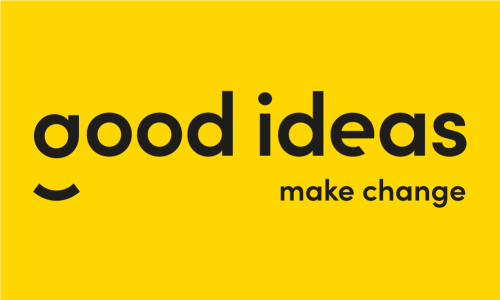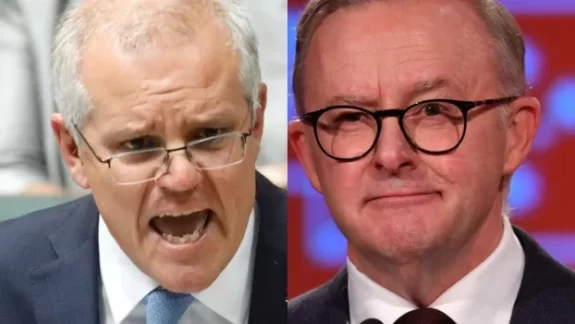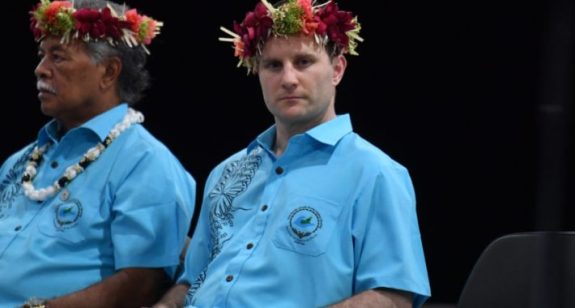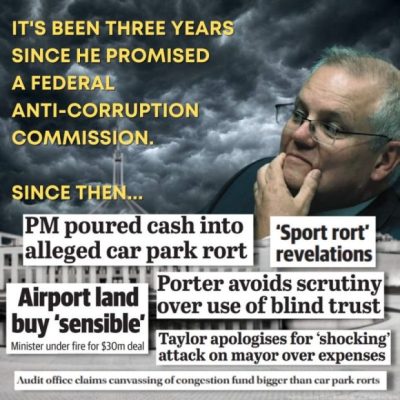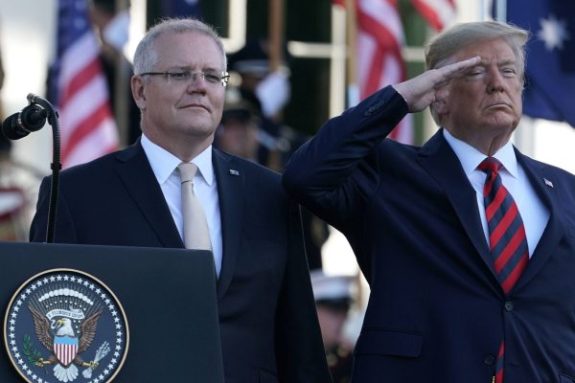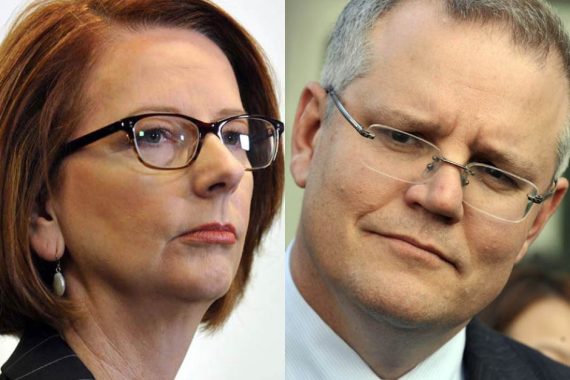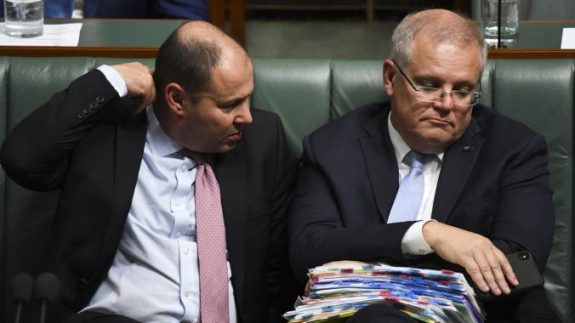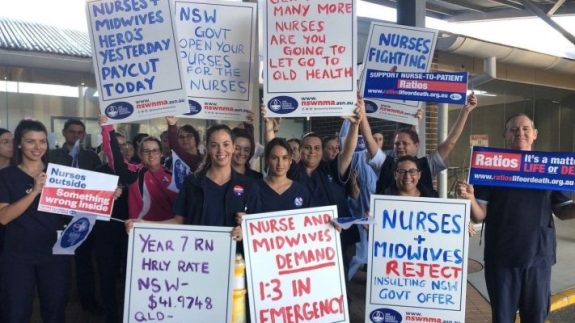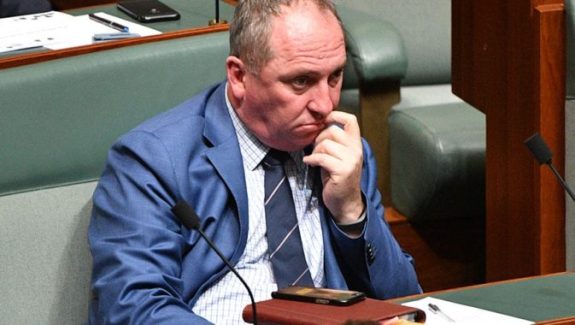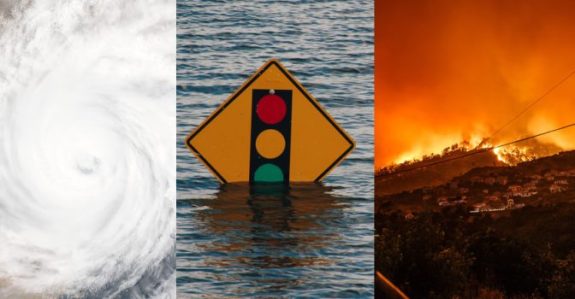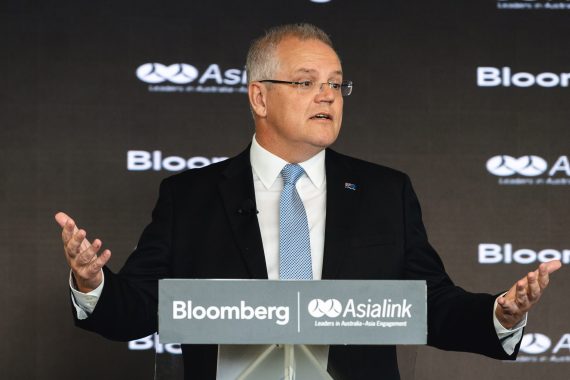On June 26, 2019, Prime Minister Scott Morrison delivered a “major foreign policy address” at Asialink, in the lead-up to the 14th G20 Summit. Ttled “Where we live”, it outlined “our plan to foster an open, inclusive and prosperous Indo-Pacific, consistent with our national interests.”
The following is an excerpt from that speech:
“We share a comprehensive strategic partnership and free trade agreement with the People’s Republic of China, with a broad and deep relationship underpinned by people-to-people ties; evidenced by the fact we are home to 1.2 million ethnic Chinese and are host to 1.4 million Chinese visitors and 205,000 Chinese students each year.
China’s conscious decision to pursue prosperity as a strategy for national unity and stability launched one of the world’s greatest economic miracles.
Now China is a significant power, with vast military, global interests and the biggest economy in the world in terms of purchasing power parity.
It is important to acknowledge that this success was made possible by the active and strategic engagement of the United States and the wider global community.
Firstly, through enthusiastic bilateral exchange and then by supporting access to the global rules-based trading system through China’s accession to the WTO in 2001, gave it much better access to the markets of 154 member economies.
This also required reforms from China that supported its rapid economic expansion.
China is now the major trading partner of more than 50 countries.
In 1980, China’s trade with the outside world amounted to less than $40 billion. By 2015, it had increased one hundredfold, to $4 trillion
China is the largest holder of foreign US currency reserves.
China’s economic rise has not been a zero sum game. This has been especially true in Australia’s case, but also for the United States.
This is why Australia has always, and will continue to, welcome China’s economic growth.
However, the ground has now shifted. It is now evident that the US believes that the rule-based trading system – in its current form – is not capable of dealing with China’s economic structure and policy practices.
Our prosperity, and that of our Indo-Pacific partners, depends strongly on the maintenance of an open global economy and a rules-based trading system.
It will also depend on a positive, productive and cooperative bilateral relationship between China and the US.
This will require the exercise of special responsibilities by these “Great Powers” to resist a narrow view of their interests.
In 1951 George Kennan wrote, in American Diplomacy:
“If our purposes and undertakings here at home are decent ones, unsullied by arrogance or hostility towards other people or delusions of superiority, then the pursuit of our national interest can never fail to be conducive to a better world.”
As a rising global power, China also now has additional responsibilities.
It is therefore important that US-China trade tensions are resolved in the broader context of their special power responsibilities, in a way that is WTO-consistent and does not undermine the interests of other parties, including Australia.
The accumulation of issues that have led to these tensions must be acknowledged, addressed and resolved at the negotiating table in a way that reinforces our open and inclusive global trading system.
Like all of us, China and the US have a strong interest, and a special responsibility, to modernise and support the system that has delivered unprecedented growth in national wealth and living standards over the last two decades.
We can support these efforts and outcomes by rejecting the fatalism of increased polarisation and resisting the analysis that only sees these issues through a binary prism.
It is in no-one’s interest in the Indo-Pacific to see an inevitably more competitive US-China relationship become adversarial in character.
All nations in our region, not just Australia, are having to adjust to this period of great power competition.
Like others who live here, Australia simply seeks the freedom to be ourselves, peacefully pursue our national interests, consistent with our values, appreciating our history and being transparent and honest about our aspirations for the future.
These shared challenges create important common ground, which is where I see Australia continuing to play an important role.
So we won’t be fazed, intimidated or fatalistic.
Of course the international environment is difficult.
Of course there are risks of further deterioration in key relationships and consequent collateral impacts on the global economy and regional stability.
There are alsopressures to decouple the Chinese and American economic systems, whether this be in technology, payments systems, financial services or other areas.
But these are not insurmountable obstacles. To think they are not does not amount to some modern form of appeasement. This is a straw man argument.
And what’s the alternative?
These risks not only can but must be mitigated, and this comes more possible when we work together.
We should not just sit back and passively await our fate in the wake of a major power contest.
This underestimates and gives up on the power of human, state and multilateral agency.
There are practical steps that we can pursue.
So we will play our part. We will not be passive bystanders.
Our approach will be based on key principles.
A commitment to open markets with trade relationships based on rules, not coercion.
An approach which builds resilience and sovereignty.
Respect for international law and the resolution of disputes peacefully, without the threat or use of coercive power.
And a commitment to cooperation and burden-sharing within strong and resilient regional architecture.
None of those principles is inconsistent with the natural instinct of sovereign nations to compete.
And It is not inevitable that competition leads to conflict.
We have already demonstrated that like-minded nations can take measures to help shape their own destiny.
We will continue to lead by example, developing our close web of relationships across and within the Indo-Pacific.
This year we hope to conclude the Regional Comprehensive Economic Partnership, an agreement that includes 16 economies and accounts for about one-third of global GDP.
It would be the first regional free trade agreement to include India and has the 10 nations of ASEAN at its core.
RCEP’s membership includes 10 out of Australia’s top 15 trading partners, account forover 60 per cent of Australia’s two-way trade, andover 70 per cent of Australia’s goods and services exports.
To conclude the agreement when leaders meet in Bangkok in November this year, I would urge leaders to send their Trade Ministers to the meeting next month in Beijing with a clear mandate to deal.
While continuing to work with other partners in the region we will also deal directly with our great and powerful friends.
Our relationship with the US has never been stronger.
Ours is a resolute and mutually beneficial alliance partnership where neither party has the need to prove anything to each other.
My Government is also committed to further enhancing our relationship with China.
Our relationship with China has many strengths.
Our trading relationship is flourishing, with two-way trade reaching a remarkable $215 billion in 2018, which benefits both countries.
Our cooperation with China through our Comprehensive Strategic Partnership goes well beyond economic issues.
We are working together across fields including health, education, and taxation, where Australia offers world-class expertise.
We’ve also been cooperating successfully to counter drug trafficking through Taskforce Blaze.
There is more we can do. That’s why we established the National Foundation for Australia-China Relations earlier this year.
The Foundation will strengthen areas where we already cooperate, deepen the already rich links across our communities, and help identify new areas for practical cooperation.
While we will be clear-eyed that our political differences will affect aspects of our engagement, we are determined that our relationship not be dominated by areas of disagreement.
The decisions we make in relation to China are based solely on our national interests, just as theirs are towards Australia, and these are sometimes hard calls to make.
But they are designed always to leave large scope for cooperation on common interests and recognise the importance of China’s economic success.
This success is good for China, it is good for Australia.
McKinsey estimates that 2.6 per cent of consumption in the rest of the world is imported from China, compared with 0.8 per cent in 2000.
Chinese imports now account for 2.0 per cent of the gross output of the rest of the world, compared with 0.4 per cent in 2000.
We welcome Chinese investment.
We have welcomed it for decades.
The stock of Chinese investment in Australia in 2018 was more than 8 times larger than a decade ago, and China is our ninth largest investor behind the USA, Japan, UK and the Netherlands.
Australia has the most liberal foreign investment regime in our region. It is not possible for Australians to invest in China in the way Chinese investments are made here. Perhaps this will change, but our policy is not framed in the context of reciprocity, but national interest.
We retain our sovereignty over these investments, especially in relation to strategic and national security considerations, but where such issues are satisfied, we would be only harming our own economic interests if we were to deny our economy access to this capital.
That is why we operate a non-discriminatory approach to investment screening.
And I note that all nations, including China, screen foreign investment.
The infrastructure needs of the region are enormous and Australia welcomes the contribution that the Belt and Road Initiative can make to regional infrastructure investment and to regional development.
Let me close by making the following observations.
There are gathering clouds in the global economy.
The trading relationship between the world’s two most important economies is under serious strain.
But an ever-worsening trajectory in this relationship is not inevitable.
We all have responsibilities to deepen patterns of co-operation, especially in the Indo-Pacific.
Australia is ready to play its part.
We embrace free trade, global engagement and an international system where we agree rules, stick to them and honour our commitments.
That is the surest path to an open, stable and prosperous Indo-Pacific.”
Like what we do at The AIMN?
You’ll like it even more knowing that your donation will help us to keep up the good fight.
Chuck in a few bucks and see just how far it goes!

